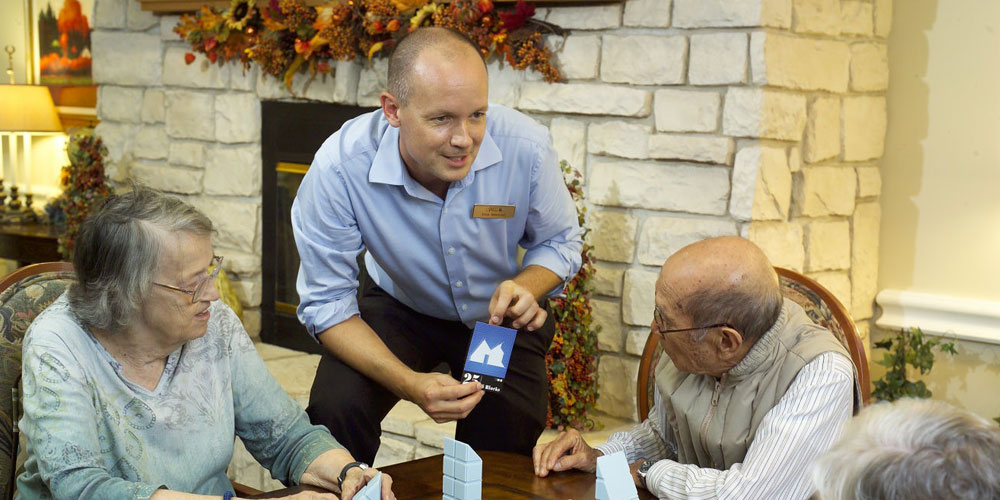Most of us know the importance of regular exercise to keep the body fit, but how many can say we put equal emphasis on exercising our brains?
“It’s more important than you think,” said Beverly Sanborn, LCSW, gerontologist and Belmont Village VP of programs. “Just as we build muscle strength to keep our bodies fit, we need to build cognitive reserve to keep our brains fit.”
Experts say changes in the brain begin as early as two decades before symptoms of Alzheimer’s disease are present. But there are things you can do to help the brain build new neuro-connections and create cognitive reserve to draw on as you age.
10 Tips for Maintaining the Brain:
- Eat Right – What’s good for the heart is good for the brain – A heart-healthy diet promotes blood flow to the brain; include plenty of dark-skinned fruits and vegetables for protective antioxidants.
- Exercise – No avoiding it – Minimum 30 minutes a day, with a mix of cardio and strength training.
- Challenge Your Brain – The best brain exercises teach you something new and are a mental stretch.
- Stay Social – Isolation and inactivity can lead to depression, which contributes to certain dementias.
- Reduce Stress – Chronic stress releases a cascade of hormones that eventually affects memory.
- Sleep, Sleep, Sleep – Sleep deprivation disrupts the coordinated activity of an important brain network.
- Be Present – Stop multi-tasking – Interruptions interfere with short and long-term memory formation and older brains have a harder time quickly switching between tasks, hence the “senior moment.”
- Embrace Your Spirituality – This is different for everyone, but it’s basically your values and how you connect with the world. Whether you’re doing good works or taking time for prayer or meditation, attending to your spiritual side creates well-being and reduces stress.
- Maintain Your Purpose – We all need a reason to get up in the morning. Feeling that your life has meaning and that you’re in control fosters positive attitudes and emotions.
- Evaluate and Adjust – Don’t get stuck in a rut – just as with physical exercise, mental work-outs have to be adjusted periodically to remain effective and interesting.
The best tip? “Don’t wait to start, and don’t give up hope. There’s no cure for Alzheimer’s, but maintaining your brain is the best way to slow decline, regardless of age,” said Sanborn. “At Belmont Village, we’ve seen improvements in residents with early and even mid-stage loss as they became more active in our programs.”

